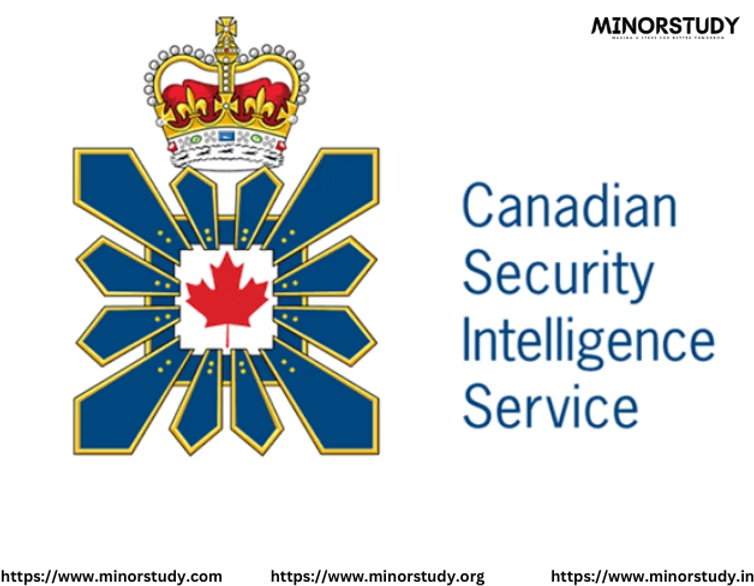The Canadian Security Intelligence Service (CSIS) is Canada’s primary intelligence agency, responsible for collecting, analyzing, and reporting on national security threats. It plays a crucial role in protecting Canada from espionage, terrorism, cyber threats, and other security risks. Similar to organizations like the CIA or MI6, CSIS focuses on intelligence-gathering and does not have law enforcement powers.
Overview
Established: June 21, 1984 (replacing the RCMP Security Service).
Headquarters: Ottawa, Ontario, Canada.
Parent Department: Operates under the Public Safety Canada portfolio.
Mission: “To protect Canada’s national security and interests through effective intelligence and advice to the government.”
Key Responsibilities
Counterterrorism:
Monitoring and mitigating threats from domestic and international terrorist organizations.
Preventing radicalization and violent extremism within Canada.
Counterintelligence:
Protecting Canada against espionage by foreign governments and actors.
Investigating threats to sensitive Canadian industries, technologies, and intellectual property.
Cybersecurity:
Identifying and neutralizing cyber threats to critical infrastructure, government networks, and the private sector.
Foreign Intelligence:
Gathering intelligence outside Canada to safeguard national security and support government decision-making.
National Threat Assessment:
Providing the Canadian government with assessments of evolving security threats.
Structure
CSIS is divided into several branches to handle its diverse functions:
Counter-Terrorism Branch: Focused on preventing terrorist attacks and disrupting extremist networks.
Counter-Intelligence Branch: Handles espionage cases and protects Canada’s interests against foreign actors.
Foreign Collection Program: Conducts intelligence operations overseas to gather information on external threats.
Security Screening: Provides background checks for government employees and immigration applicants to prevent potential threats.
Research, Analysis, and Production: Processes raw intelligence into actionable insights for government policy-making.
Key Powers and Jurisdiction
CSIS operates under the Canadian Security Intelligence Service Act (1984), which defines its mandate and limits.
Unlike law enforcement agencies like the RCMP, CSIS:
Does not have arrest powers.
Focuses solely on intelligence collection and analysis.
Shares actionable intelligence with law enforcement when needed.
CSIS is authorized to use covert surveillance, intercept communications (with judicial approval), and engage in foreign operations.
Significant Threat Areas
Terrorism:
Ongoing monitoring of groups like ISIS, Al-Qaeda, and domestic extremist movements.
Espionage:
Countering foreign governments attempting to gather sensitive Canadian intelligence or interfere in domestic affairs.
Cyber Threats:
Mitigating cyberattacks targeting Canadian infrastructure and institutions, often from state-sponsored actors.
Foreign Influence:
Addressing interference in Canadian politics, media, and academia by foreign powers.
Key Initiatives and Activities
Security Screening Program:
Conducts rigorous background checks for immigrants, refugees, and government employees to prevent infiltration by hostile actors.
Outreach Programs:
Engages with Canadian communities to prevent radicalization and promote awareness about national security.
Collaboration with Allies:
Works closely with the Five Eyes Alliance (Australia, Canada, New Zealand, the United Kingdom, and the United States) for intelligence sharing.
Public Reporting:
Publishes an annual public report to inform Canadians about security challenges and CSIS activities.
Notable Challenges
Civil Liberties Concerns:
Balancing security operations with the protection of privacy and freedoms under the Canadian Charter of Rights and Freedoms.
Facing criticism for controversial programs, such as surveillance of activists.
Cybersecurity:
Dealing with increasingly sophisticated cyberattacks from state and non-state actors.
Foreign Interference:
Addressing covert efforts by countries like China and Russia to influence Canadian politics and society.
Evolving Terrorism Threats:
Monitoring domestic terrorism and extremism, including far-right and far-left ideologies.
Key Achievements
Counter-Terrorism Successes:
Successfully disrupted several plots, including the Toronto 18 case (2006) and various ISIS-linked threats.
Enhanced Foreign Intelligence:
Expanded its global presence to address international threats before they reach Canada.
Improved Public Transparency:
Increased public awareness through reports and outreach while maintaining operational secrecy.
Recent Developments
Focus on Foreign Influence:
Increased efforts to address espionage and election interference concerns.
Cybersecurity Investments:
Partnering with the Canadian Centre for Cyber Security to bolster national defenses.
Anti-Radicalization Strategies:
Expanding community engagement to counter extremism.
Significance
The Canadian Security Intelligence Service is vital for ensuring Canada’s security in an era of complex threats. Its role in intelligence collection, counterterrorism, and cyber defense safeguards Canadian sovereignty, protects critical infrastructure, and ensures public safety. Despite challenges, CSIS continues to adapt to emerging security needs.









Some genuinely interesting points you have written.Helped me a lot, just what I was searching for : D.